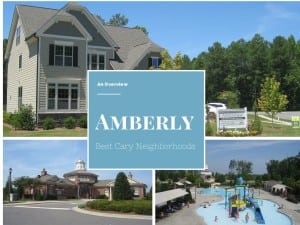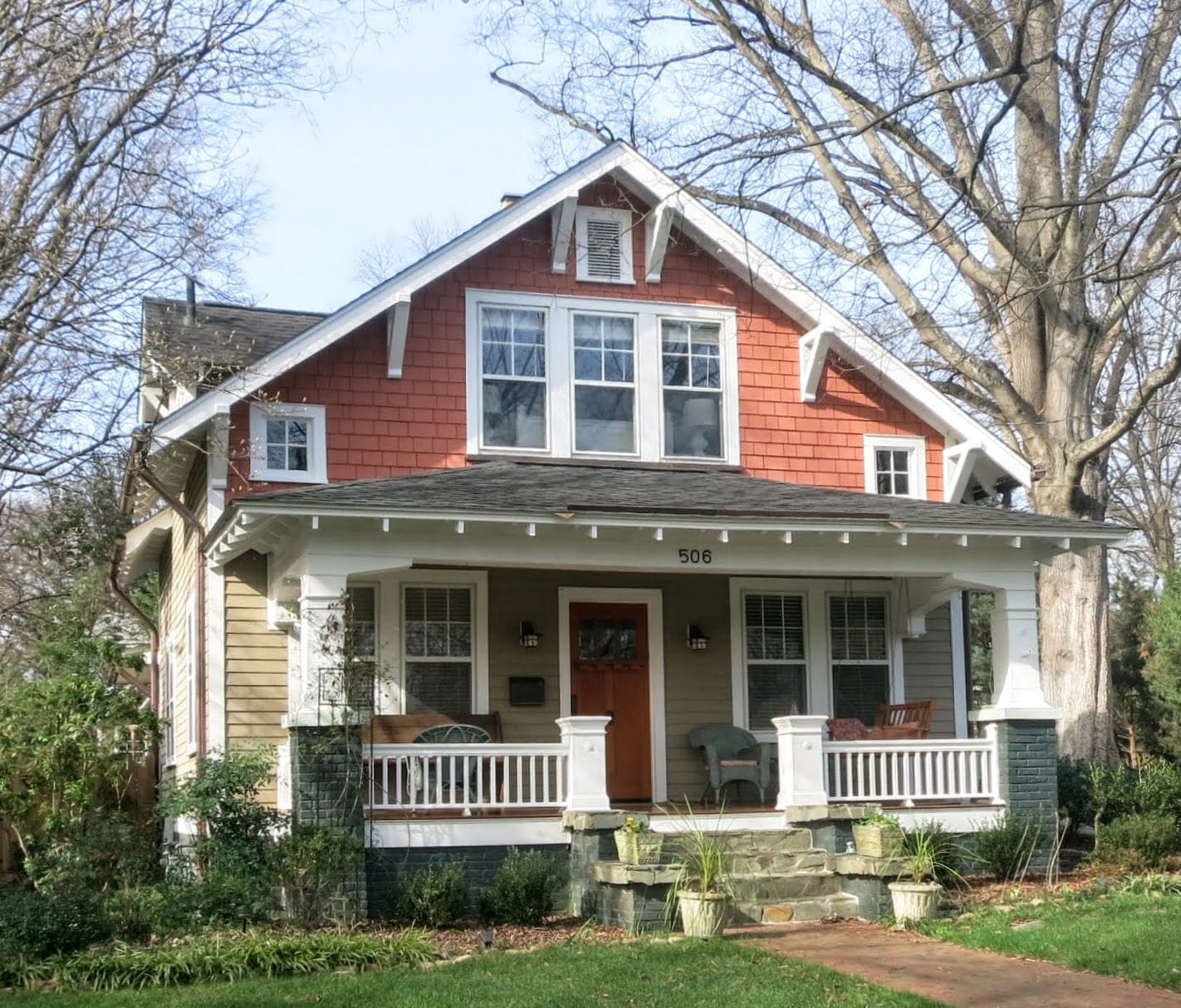
Quick Links
- How to pick the best lot
- The lot will be important for resale
- Research the development plan
- Register of Deeds and Planning Application
- The view
- Drive around the neighborhood
- Topography
- Why aren’t there basements in NC?
- Is the lot flat or sloped?
- Power lines
- Peace and Quiet
- Orientation of available lots
- Fill
- Retaining walls
- Erosion Control
- Sewer pump (lift) stations and manholes
- Pick your lot
How to pick the best lot
The lot will be important for resale
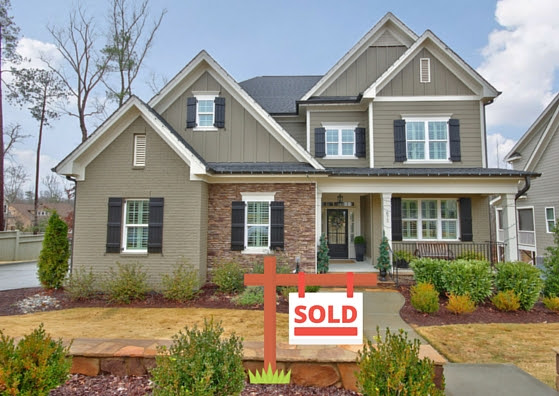
Lot is staked out
There is so much new construction going on in the Raleigh area with new home developments popping out of the ground in Cary, Apex, Holly Springs and south of Chapel Hill in Chatham County. Choosing the right lot is as important as the builder and floor plan when it comes to resale in the future. Having worked with buyers of new homes for years I have some tips to help avoid surprises and choose the best lot.
Research the development plan
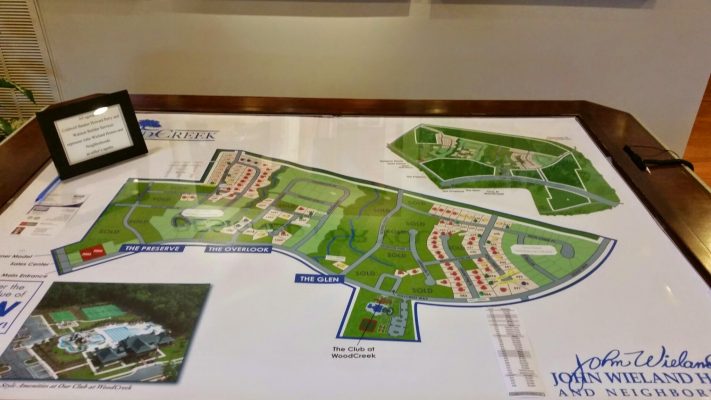
Site plan
When you go into a new home community the model home is sometimes the only home in the neighborhood. The sales office will have a pretty layout of the neighborhood showing home sites, common areas and amenities. I don’t pay any attention to that. It’s a good idea to get a list of available lots, the home site premiums, and which plans will fit on the lots. Often the largest lots aren’t the best lots because of slopes, drainage and useable area.
Register of Deeds and Planning Application
I go to the county Register of Deeds website in the county where the site is located and get the recorded plat which shows lot dimensions, size of the lots, easements, and retaining walls and common area. I enlarge the lot sections that are available and save to dropbox to view on my phone and tablet and sometimes print. The Register of Deeds will also have the HOA Documents and covenants.
Next is a visit to the town planning department website and look at the development application for more information about the sewer, utilities and neighborhood landscape plan. It’s also worth checking out the flood maps.
The view
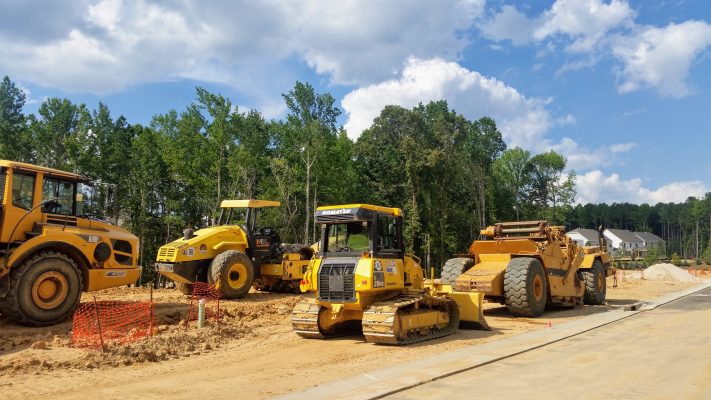
There goes the view from your lot!
Many people want a wooded view and privacy. Homes backing up to common areas often have high lot premiums.
Recently I learned a couple of things about recorded common areas. If a neighborhood has a perimeter buffer you may feel secure that the buffer area is protected and those trees will always be there. What happens if the developer buys adjacent land and incorporates it into the subdivision? The perimeter buffer is moved to the new perimeter and you may end up looking at houses not trees.
In another case, in Briar Chapel in Chapel Hill, the builders sold homes with a wooded view on common area behind the homes. The builders weren’t told that the developer had sold extra sewer capacity to a 1000 home neighborhood a few miles away. Long story short this was allowed per the covenants and the neighbors woke up one day to the sound of bulldozers in the common area behind their homes.
Drive around the neighborhood
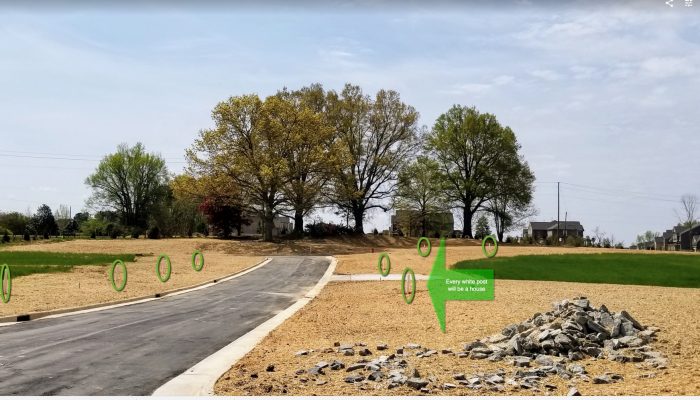
Sewer stub out posts will be on every lot
If the neighborhood is new it can be hard to tell where the lots are. Sometimes there are stakes or even builder signs on the home sites. If the utilities are in you can get an idea of the size and location of the lots by looking at the white sewer stub out pipes.
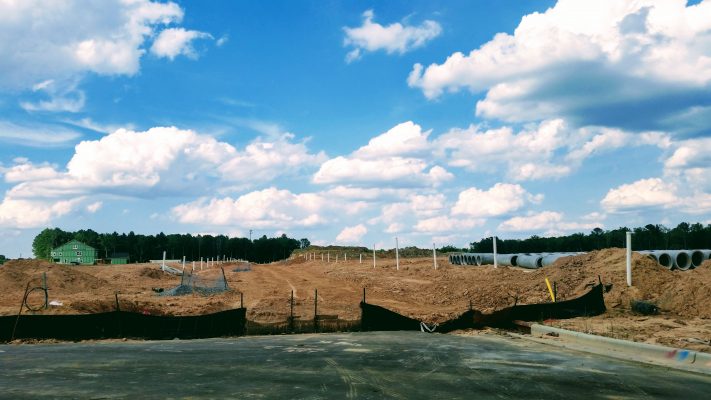
Sewer Stub outs on small lots
When driving around notice:
Topography
Are the lots flat? is one side of the street sloping down and the other up?
A downward sloping lot could be a basement lot. A basement can add $60,000 to $100,000 to the cost of a home. That may be fine if you want one.
Why aren’t there basements in NC?
Transcript: Hi. I’m Marianne Howell Wright from Chapel Hill, North Carolina. When people come to North Carolina, often they’re really surprised that we can’t have many basements here. Basements aren’t typically done in our area for several reasons. The first reason is our heavy clay soil. Clay particles are really small and won’t let the water drain away from the house. An underground basement would be really wet. It would almost be like the house was sitting in a swimming pool.
Also, in the North you have to go down pretty deep to do your foundation to get below the frost line. In North Carolina we only need to go down 18 inches, while up in New England you’d need to go down as much as 5 or 6 feet and it’s just not as cost effective here to do a basement. Builders will do basements though on slope lots. In North Carolina, we tend to call a sloped lot a basement lot. The slope allows for the water to be carried away from the house. This is a poured concrete foundation basement and poured concrete is much more popular than the masonry brick and block that was done in the past. Carlos is going to tell me why.
Karl:It’s a lot better
Marianne: It is? What makes it better?
Karl: You got rebar every 16 inches on the center. 3,000 PSI concrete. [inaudible 00:01:22]
Marianne: The basement put on a slope will have drain tiles and gravel all the way around the foundation to carry the water away from the house. This is the house framed up and this is the back, just to show you what the basement would look like when it’s framed. I hope that helps to explain why basements aren’t common in the triangle area of North Carolina. This is Marianne Howell Wright. Be sure and watch my other neighborhood videos.
Is the lot flat or sloped?
An upward sloping lot will have stairs to the front door. a steep driveway and the backyard may be up against a hill.
A lot that slopes toward the back will have more foundation costs or a basement, adding to the cost of the home.
A flat lot with other flat lots around it may have drainage problems. Where will the water flow?
Is there a stream behind the house? If the home site slops toward the back and there is common area there is usually a stream. That could mean a flood plain.
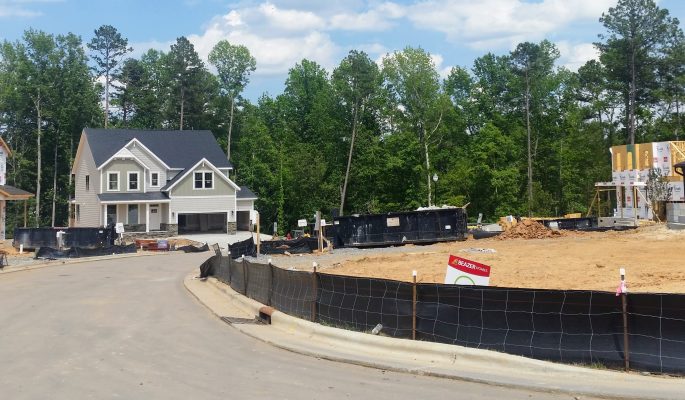
I bet there is a creek behind those lots. Check the flood maps.
Power lines

Lots with power lines problem for resale
Kiss of Death I don’t remember who used that phrase to describe a busy road and power lines.
New homes have underground power, but in almost every neighborhood there are power lines that bring electricity to the underground power. Every few lots may have a big green electrical transformer box in the yard. When the development is finished the green boxes just blend in but it can be a shock when you find out there is one in your yard.
If you care about resale don’t buy a home under a power line or backing up to a busy road unless you get a really good deal. Remember that when you sell you will have to offer a really good deal too.
Peace and Quiet
Does road hum drive you crazy? May sure you check out your neighborhood during rush hour and listen.
Check out the airports runway maps. Depending on the winds planes use different runways so noise will vary day to day and some times are much busier than others. RDU has a good page about aircraft noise.
How long will construction be going on in the neighborhood. How will you feel on a Saturday morning when the nail guns sound like machine guns.
What is around you? Quarries are often hidden but dump trucks roaring past your house you will notice. Same goes for landfills.
My personal noise problem is leaf blowers. We live on a country lot so I notice the blowers when I’m a manicured neighborhood. There is one in particular in Chapel Hill that has constant blowing noise. Not just in the fall! There are armies of landscapers on the roads and yards blowing away.
What noise really bothers you?
Orientation of available lots
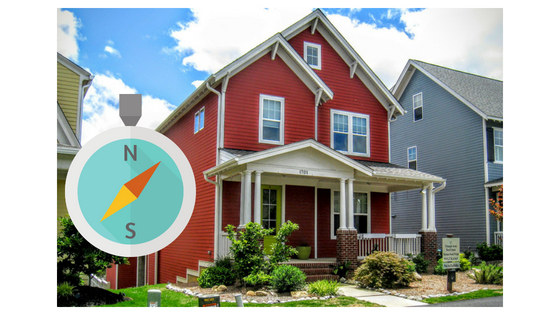
North South East West facing lot
Is the orientation important to you? Some people want a home with sun streaming in the back big windows. Others prefer the north light in the hot South. Even though we don’t get much snow and ice in the Triangle no one scrapes their driveway so getting snow melted fast can be a priority. Others want their deck to be in the shade in the afternoon for enjoying cookouts so want a west facing house. A cul de sac is great for kids but lots will be very narrow in the front and there isn’t much street parking. Figure out what is most important to you.
Fill
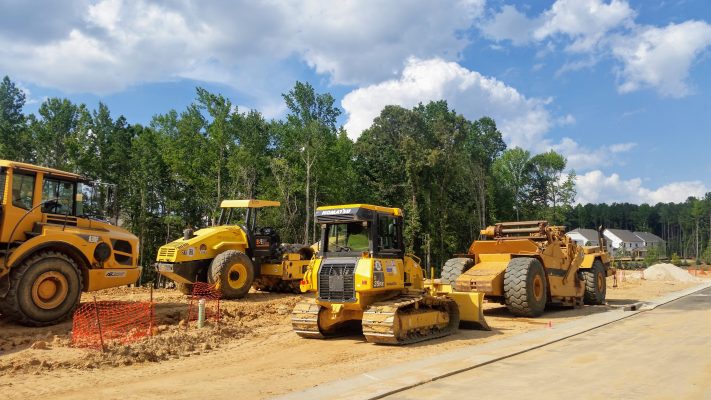
Filled lots
Usually builders fill and compact dirt when grading the site, especially when a lot slopes to woods but isn’t enough of a slope to be a basement lot. Take a look at the lot you’re interested in and notice the relationship with the lots around it. Has it been cleared? Is there a different slope? It’s possible the lot could be filled, and it’s something you should know. Keep an eye out for fill because the home might have more settlement in the future. When there is cut and fill there are often retaining walls.
Retaining walls
Many people like having their house back up to a retaining wall because of privacy. If it’s an uphill slope notice what your view will be looking out of the windows. If the wall is tall it could make the house dark, the back yard could be small and the view may not be what you are thinking. If the retaining wall is on a down slope see if the builder is going to put a fence on top of it to keep kids from falling off.
Erosion Control
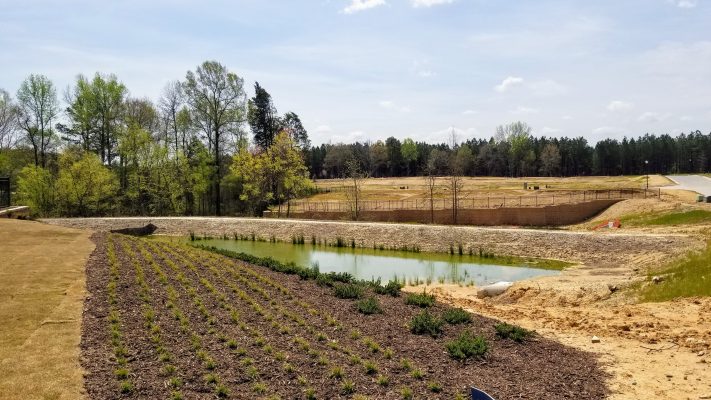
Pond and retaining wall
Erosion control is something else to look at. Sometimes storm water detention ponds are temporary but other times they’re permanent, and they can be either beautiful or a mosquito breeding ground.
Sewer pump (lift) stations and manholes
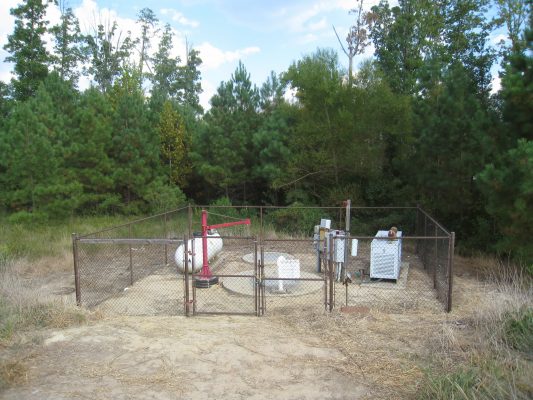
Pump Station
A pump station is a collection site for neighborhood sewage to pump it up hill to the treatment plant. They shouldn’t smell but they can, the pump can be noisy and a pump station can make a difference in your resale value. Many neighborhoods have them it may not be a problem at all in a newer neighborhood. Ask around about smells in the area.If a lot backs to a sewer easement that can be a great thing for privacy. I don’t see problems come up unless a buyer is surprised by a manhole in their back yard. Just be aware that can happen. A manhole is better than a house behind the lot, in my opinion!
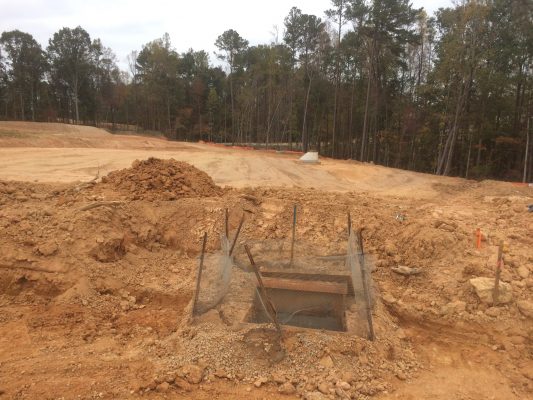
Sewer Manhole on lot
Pick your lot
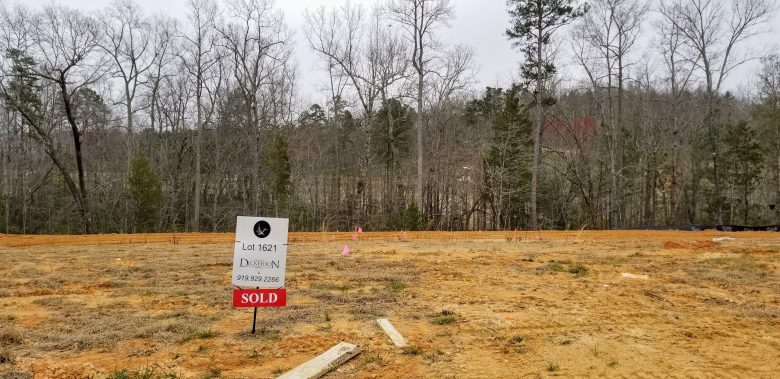
Lot is staked out
Walk your favorite lots with your buyers agent, the on site agent and the builder if available. When you are serious about going under contract see if the builder will stake the house on the lot or at least put the home on the lot in a cad drawing to see where it will fit in the setbacks. Ask if there is a chance the house will be flipped. This happens because of the streetscape or to have the driveway on the high side of the lot. It’s really disorienting to be picturing your house in one way and then find it’s been flipped.
It’s time to go under contract. Depending on the builder you may do a lot hold while you are in the design phase. Most production builders won’t do a lot hold unless it’s a really slow time of year.
Find out what is next in my Guide to New Construction In Cary. Apex, Chapel Hill and the Triangle.

